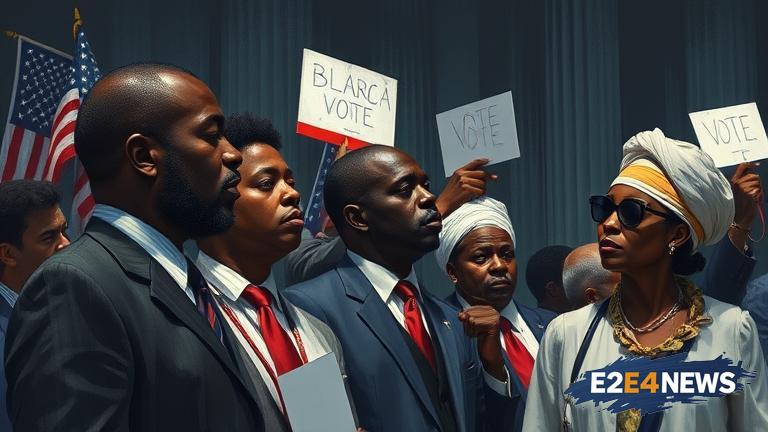The importance of Black voters in American politics cannot be overstated. Historically, Black voters have been instrumental in deciding the outcomes of elections, particularly in swing states and districts with significant African American populations. The legacy of the Civil Rights Movement, led by figures such as Martin Luther King Jr., has paved the way for contemporary Black voter activism. Despite facing systemic barriers, including voter suppression and disenfranchisement, Black voters have consistently demonstrated their power at the polls. In recent years, issues such as racial justice, economic inequality, and access to healthcare have galvanized Black voters, who are increasingly seeking candidates and policies that address these concerns. The Black vote has been crucial in electing progressive candidates, including President Barack Obama, who became the first African American to hold the office. Moreover, Black voters have been at the forefront of movements such as Black Lives Matter, which has brought attention to police brutality and systemic racism. The influence of Black voters extends beyond presidential elections, with many playing key roles in local and state politics. For instance, Black mayors and city council members have been instrumental in implementing policies that benefit their communities, such as affordable housing initiatives and community policing reforms. Furthermore, Black voters have been vocal about the need for greater diversity and representation in government, leading to increased calls for electoral reform and voter protection laws. The impact of Black voters can also be seen in the growing number of Black candidates running for office, including historic figures such as Stacey Abrams and Ayanna Pressley. These candidates have not only broken down barriers but have also helped to shift the national conversation around issues such as voter suppression and economic justice. However, despite these gains, Black voters continue to face significant challenges, including voter ID laws, gerrymandering, and limited access to voting resources. To address these issues, many organizations and advocacy groups are working to empower Black voters, through voter registration drives, civic education initiatives, and get-out-the-vote campaigns. Additionally, there is a growing recognition of the importance of intersectional politics, which acknowledges the multiple identities and experiences of Black voters, including their gender, sexuality, and socioeconomic status. By centering the voices and concerns of Black voters, policymakers and candidates can develop more effective and inclusive solutions to the challenges facing these communities. Ultimately, the significance of Black voters in American politics will only continue to grow, as they remain a vital and dynamic force in shaping the country’s future. With their rich history, diverse perspectives, and unwavering commitment to justice and equality, Black voters will undoubtedly remain a crucial component of American democracy. As the nation moves forward, it is essential to prioritize the needs and concerns of Black voters, ensuring that their voices are heard and their rights are protected. By doing so, the United States can work towards a more perfect union, where all citizens have an equal opportunity to participate and thrive. The story of Black voters is one of resilience, perseverance, and hope, serving as a powerful reminder of the transformative power of democracy and the importance of ongoing struggle and activism. Through their courage and determination, Black voters have inspired countless others to join the fight for justice and equality, leaving an indelible mark on American history and politics. As the country continues to evolve and grow, the legacy of Black voters will remain a vital part of its fabric, a testament to the enduring power of collective action and the unwavering pursuit of a more just and equitable society.
